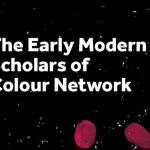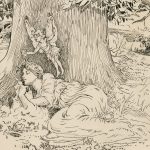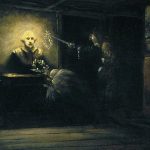
Election of Four New BSA Trustees: Voting Now Open
27th September 2022
BSA members in good standing are invited to submit their votes to elect four new trustees to the BSA Board. Voting will remain open until 12:00pm (BST) on Tuesday 4th October, so be sure to cast your votes before then.
In order to cast your votes, please log in to your BSA account and click on the ‘2023 Trustee Elections’ button on your member’s dashboard. Details of each position and the applicants’ statements are outlined below:
Trustee (and Chair of the Events Committee)
- Deborah Cartmell (De Montfort University)
As a founding member of the BSA I organised its first conference at De Montfort University and remained as a trustee and co-organiser of conferences at the University of Newcastle and King’s College London. I founded the journal Shakespeare and formed and chaired a new association, Association of Adaptation Studies, and created its journal Adaptation (OUP).
As I intend to step down from my role as Associate Pro Vice-Chancellor in 2023, I would like to re-engage with the BSA and share my expertise in conference management. In my role as Associate Pro-Vice Chancellor at DMU (2019-) I organised open research talks on COVID research, attracting over 5,000 viewers and recently I have been Co-I on an AHRC- funded project ‘Remixing the Classics’ which has run 7 events since March 2022. As Chair of Association of Adaptation Studies, I organised conferences at DMU, Senate House, The British Film Institute, the University of Cambridge, and the University of Oxford. Taking my cue from the SAA, external venues were hired, and the Association set the fee, resulting in modest surpluses of approximately £5,000 for each event.
If successful in this application, my plans are to:
1) Use my experience to organise events independent of university support for the BSA to benefit financially from the events. These could be planned to coincide with the Edinburgh festival, theatrical performances in London or Stratford-upon-Avon and new initiatives across the UK.
2) Expand the remit of the conferences to include exhibitions (as I did for a University of Cambridge conference). The BSA would take a small percentage of the sales.
3) Introduce regular BSA podcasts, possibly chaired by the BSA Chair, to bring new developments in Shakespeare studies to a larger audience with conversations on topics such as recent productions, digital editions, digital adaptations, biographies, and memorials.
- Koel Chatterjee (Trinity Laban Conservatoire of Music and Dance)
I have always enjoyed organising academic events and have initiated two big Shakespeare conferences while I was at Royal Holloway – the Shakespeare and Bollywood conference in 2014 in collaboration with RHUL and Tara Arts, and the Indian Shakespeares on Screen conference in 2016 in collaboration with the British Film Institute, Southbank, and Asia House. As I come back to full time work after Covid and maternity leave, I feel I would like to use my organisational skills again and the advertisement for the position of trustee made me feel like I might be a good fit for the role.
I am currently a Lecturer at Trinity Laban which is a Conservatoire for Dance and Music, and though I continue to carry on my individual Shakespeare research, my role at TL does not offer me many Shakespeare related opportunities. Being a BSA trustee would allow me to network and work with other Shakespeare scholars, practitioners, and educators. As a BAME Shakespeare scholar with an interest in popular culture and public engagement, I feel like I would have a lot to contribute to the BSA network in terms of experience, research, and
personal networks and would be in a good position to steer the organisation to better meet the needs of practitioners in theatre, radio, tv, film, education, and academia, and to engage members of the public with the work of Shakespeare. As a full-time salaried faculty member at Trinity Laban, I do have a certain amount of flexibility with regard to time which will allow me to volunteer my time for the Trustee role.
Trustee (and Chair of the Honorary Fellowships Committee)
- Ailsa Grant Ferguson (University of Brighton)
I would be delighted to play a more active role in the British Shakespeare Association via Trusteeship and am particularly interested in the work of the Honorary Fellowship committee. I am an academic specializing in Shakespeare, early modern women and their afterlives in performance and cultural memory. Before working in academia, however, I was a development manager in the charity sector and am a PGCE-qualified teacher, so have a wide range of experience both within and outside the academy on which to draw for the demands of this position. The BSA’s Honorary Fellowship is a unique acknowledgement of the wonderful diversity of approaches that together form the study and practice of Shakespeare in today’s Britain and I would be delighted to be involved in the whole process of nominations and awards.
As an academic, I have always focused on collaborative working with practitioners and non-HEI charities, as well as public engagement, and I am therefore particularly drawn to the role as an opportunity to work with others to ensure the diversity of Shakespearean practice and study is represented. As a woman who has faced chronic health (causing hidden disability) challenges, I hope I would bring some useful perspectives as well as experience from work I undertake in my own institution on equality, diversity and inclusion. I admire the BSA’s leadership by example on inclusivity and diversity and would be thrilled to play a part in continuing this work. The visibility of the Fellowship is a particularly positive way in which the BSA declares its unifying force via its non-hierarchical attitudes to diverse practices and its inclusive approaches to how we understand and explore Shakespeare. I would be grateful for the opportunity to become a Trustee and contribute to the BSA’s important work.
- Brett Greatley-Hirsch (University of Leeds)
I’m Associate Professor of Renaissance Literature and Textual Studies at the University of Leeds. Although I maintain an active interest in the early English representation of marginal figures (such as Jews, Catholics, witches, werewolves, bagpipers), much of my current research involves the creation of digital editions as well as the computational analysis of style, genre, and authorship in the works of Shakespeare and his contemporaries.
I’m coordinating editor of Digital Renaissance Editions, co-editor of the Routledge journal Shakespeare, and co-author (with Hugh Craig) of Style, Computers, and Early Modern Drama: Beyond Authorship (CUP, 2017). I’m currently co-editing Hyde Park for the Oxford Shirley and contributing essays on authorship, style, and genre for the Oxford Marston, the Oxford Nashe, and The Oxford Handbook of Shakespeare and Authorship. My favourite Shakespeare play is The Merchant of Venice, and my favourite Hamlet is Andrew Scott – though I’d love to see Jodie Comer in the role!
I’ve previously served the BSA as Trustee and Web & Communications Officer. As part of my work as co-editor of Shakespeare, I keep an eye on our field – where it has been and where it is going – like a panopticon, but with an Elizabethan ruff. Being Chair of Honorary Fellowships will enable me to ensure that the BSA recognises innovation, achievement, and sustained contribution.
Trustee (and Chair of Performance & Media Committee)
- Sarah Dustagheer (University of Kent)
I am writing to submit my application for BSA Trustee and Chair of Performance and Media Committee. I believe I have the necessary skills and experience to fulfil this role well, and would look forward to contributing to the work of the BSA. I am an established researcher in early modern and contemporary Shakespearean theatre, with a significant publication record, working on the edge of contemporary theatre practice. As the first AHRC CDA PhD student at Shakespeare’s Globe, I began my HE career embedded in theatre and have continued to collaborate with practitioners. My publications often draw on practitioner testimony and I have worked on several collaborative creative projects. The Chair role of working to establish connections between theatre makers, academics and teachers is one I feel well placed to do. For my current project, I am Performance Editor for a new edition of Christopher Marlowe’s works (under contract, Oxford UP). My role will bring theatrical practice to bear on editorial process, working with The Marlowe Theatre, the American Shakespeare Center, the Rose Bankside and Lazarus Theatre Company. I have extensive experience of public engagement and media work. I have undertaken consultancy services for Shunt Theatre, the National Theatre and the RSC; I am a trustee of the Deal Arts and Musical Festival and member of Shakespeare’s Globe Architecture Research Group. As one of the few women of colour in Shakespeare studies, I take an active role in conversations around the diversification of the field both in terms of pedagogy, publication and theatre making. I would seek to bring this advocacy to this role, developing the shape of the BSA for the future. I have extensive experience of university leadership positions, having acted as Deputy Head, Acting Head and now in my role as Deputy Director of the Division of Arts and Humanities. In this way, I would feel comfortable with Chair duties, including advocacy, liaison and strategy.
- Ollie Jones (University of York)
My research interests lie predominantly in the performance of early theatre in theory and practice, encompassing both ‘original’ and modern practices, and in the interdisciplinary intersections of literature, performance, history, archaeology and architectural history. While I am interested both in early modern contexts and conditions of performance, and also in modern staging and interpretations, I particularly focus on how one might inform and support the other, and vice versa. In my current research project on Shakespeare’s Rivals, for example, I investigate how understanding early modern humanist rhetorical education can not only help us analyse and differentiate the verse of different playwrights, but allow us to develop a rhetorical toolbox which is an accessible and liberating resource for modern actors. Central to this investigation is collaboration and dialogue with student and professional actors and directors.
I am therefore keenly interested in, and well-positioned to support, the BSA Performance and Media Committee’s aim to support the community of industry and academic practitioners working with Shakespeare (and his contemporaries) in performance. There has long been a degree of separation between academic study and professional rehearsal room practice. I am eager to help widen dialogue and foster productive collaboration between spheres which have sometimes viewed each other with a degree of suspicion. The BSA’s position and reputation for promoting such relationships offers a strong foundation to develop this even further.
In my institutional roles as former Head of UG & PG Admissions for the department, and now as Chair of Marketing and Communications Committee, I have substantial experience running committees with diverse participants and stakeholders, and fostering collaboration and collegiality to deliver the work and results required by the department.
- Sara Reimers (University of Bristol)
I am a scholar and a practitioner who specialises in feminist and queer stagings of Shakespeare’s plays. In addition to my role as a lecturer in the Department of Theatre at the University of Bristol, I work as a freelance director and dramaturg. I am keen to collaborate with the BSA to develop their offering to artists and believe that I am well-placed to undertake this work.
I have a wide network that I would draw on in the role. As a director and dramaturg I have worked on Shakespeare productions with a variety of fringe companies including Lazarus Theatre, Action to the Word, and By Jove Theatre Company. I am currently collaborating with Restless Theatre on a new play inspired by Shakespeare. I also contributed to the Young Vic’s TranShakespeare project and provided dramaturgical support for the inaugural season of the Sam Wanamaker Playhouse.
As a scholar, my research is increasingly informed by practice. For example, I collaborated with the research team of the AHRC-funded “Performing Restoration Shakespeare” project as an embedded scholar on Davenant’s Macbeth at the Folger Theatre. With practice-as-research becoming an increasingly important methodology in Shakespearean Studies, I believe the BSA has an important role to play in helping facilitate positive working relationships between practitioners and the academy. I would hope to work with the committee to create a range of resources to support practical collaborations.
Having attended the BSA’s inaugural event on Shakespeare in Practice in 2018, I would also hope to develop and implement the ideas discussed there, including creating a database of scholars and artists and hosting regular networking events and discussion panels. I believe I am uniquely positioned to be able to lead these developments and to disseminate them to a wide audience.
Education Trustee
With over 10 years’ experience in Education (state, independent, and specialist support), teaching English and History, as well as recent strategic management experience in the charity sector, I believe I would be an excellent candidate for the Education Trustee post.
My MA in Shakespeare and Education enables me to incorporate my lifelong love of Shakespeare into my teaching – hopefully inspiring schools, staff and students to enjoy the works of Shakespeare and his contemporaries. Through invigorating lesson plans, knowledge of exam boards (having worked as an examiner for WJEC and AQA) and managing Shakespeare specific events, (including CPD staff sessions), I feel I have inspired people to enjoy Shakespeare beyond the classroom whilst recognising the study of his works as a vehicle for wider learning, life skills, and well-being.
I would love the opportunity to support the BSA to further their aims and foster a love of Shakespeare across the four main constituencies and beyond.
For the past four and a half years, while undertaking my PhD at Edge Hill University, I have been immersed in Shakespeare and Education. My recently submitted thesis considers the ways that Shakespeare is taught in secondary schools, specifically with regards to the types of texts employed in the classroom. I embarked upon the PhD because teaching Shakespeare was the thing I loved most, as an English teacher. I would very much enjoy the opportunity to share this love with others in the field of education.
In my research I asked: ‘What is the value of ‘reworked’ Shakespeare in English secondary schools?’ This question, and the subsequent interviews I conducted with a sample of students and English teachers, led to insights on pedagogy and on experiences and perceptions of Shakespeare. Alongside my PhD, I have worked in Initial Teacher Education, training, and supporting people to become English teachers. My work here has provided a network that I could access to promote events, and to encourage blogging about Shakespeare and pedagogy. Prior to my PhD, I spent eighteen years as an English teacher. This combination of experience means that I have a practical understanding of the workings of schools, National Curriculum, and assessment, together with an academic perspective on how teachers and students experience and perceive Shakespeare in a school setting.
I would like to use my combined knowledge and experience to promote the works of Shakespeare in the educational sphere. According to the participants in my research, the Shakespeare requirement in GCSE English is driving much of the current approach to Shakespeare teaching; I believe this is limiting enthusiasm for the works and that external voices such as the BSA can and should prompt, suggest, and offer other or additional ways to experience Shakespeare.









